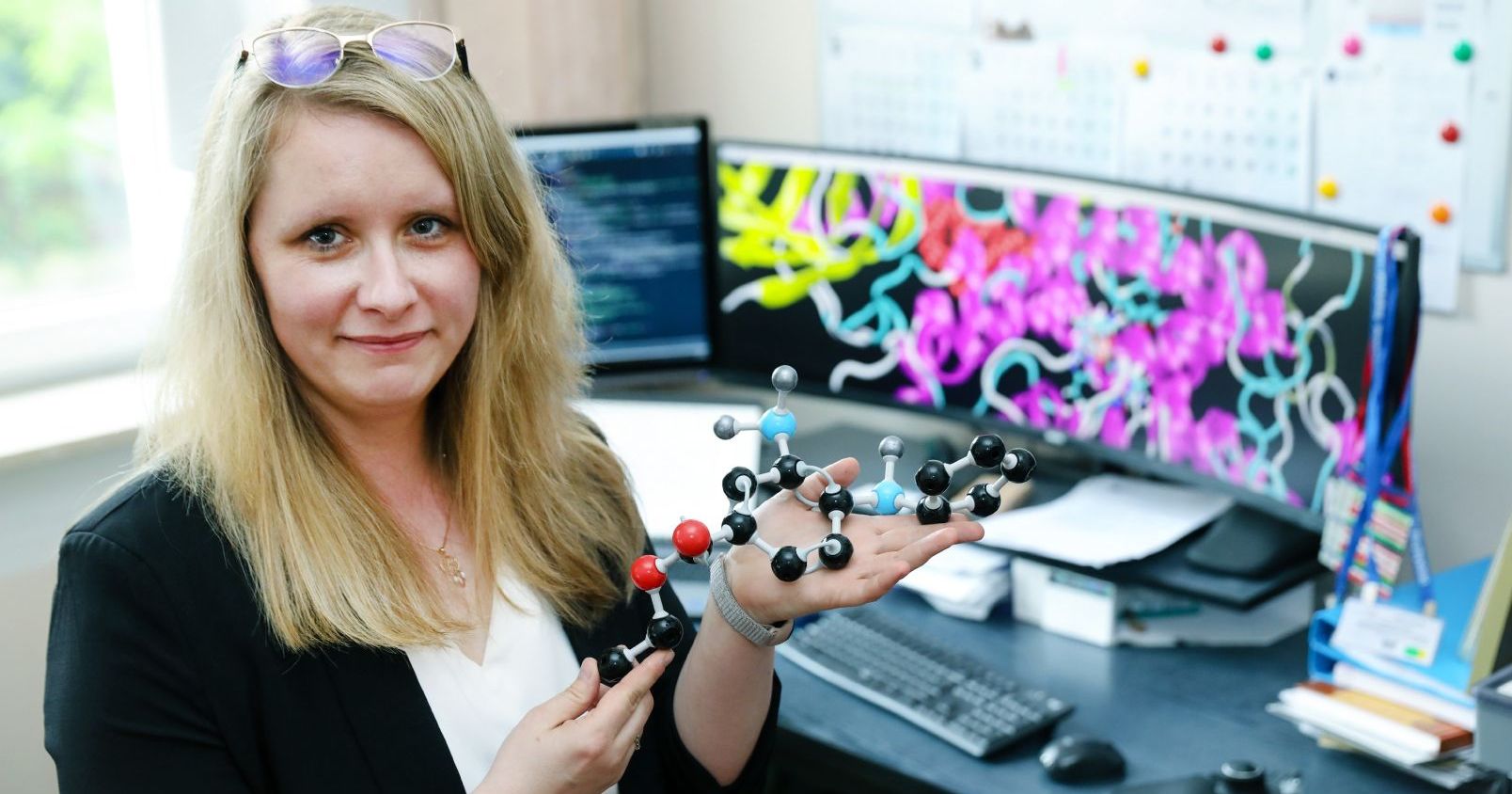 Exact sciences
Exact sciences
Rising talent of the world’s science
Karolina Mikulska-Rumińska, PhD, from the Institute of Physics, NCU has won a scholarship in an international program For Woman in Science. L'Oréal Foundation and UNESCO have granted her International Rising Talent award for her work on dying cells – this is a key issue in developing methods of treatment of cancer or neurodegenerative diseases.
UNESCO states that in the world of science, there are twice more men than women, only 14 % of women hold higher academic positions in Europe, and among those women awarded with the Noble Prize there are even fewer women, merely 4. Therefore, a new concept has come to life, a concept to promote and support the research work of women, and what it leads to is to increase their representation in the life of science and contribute to its more complete development.
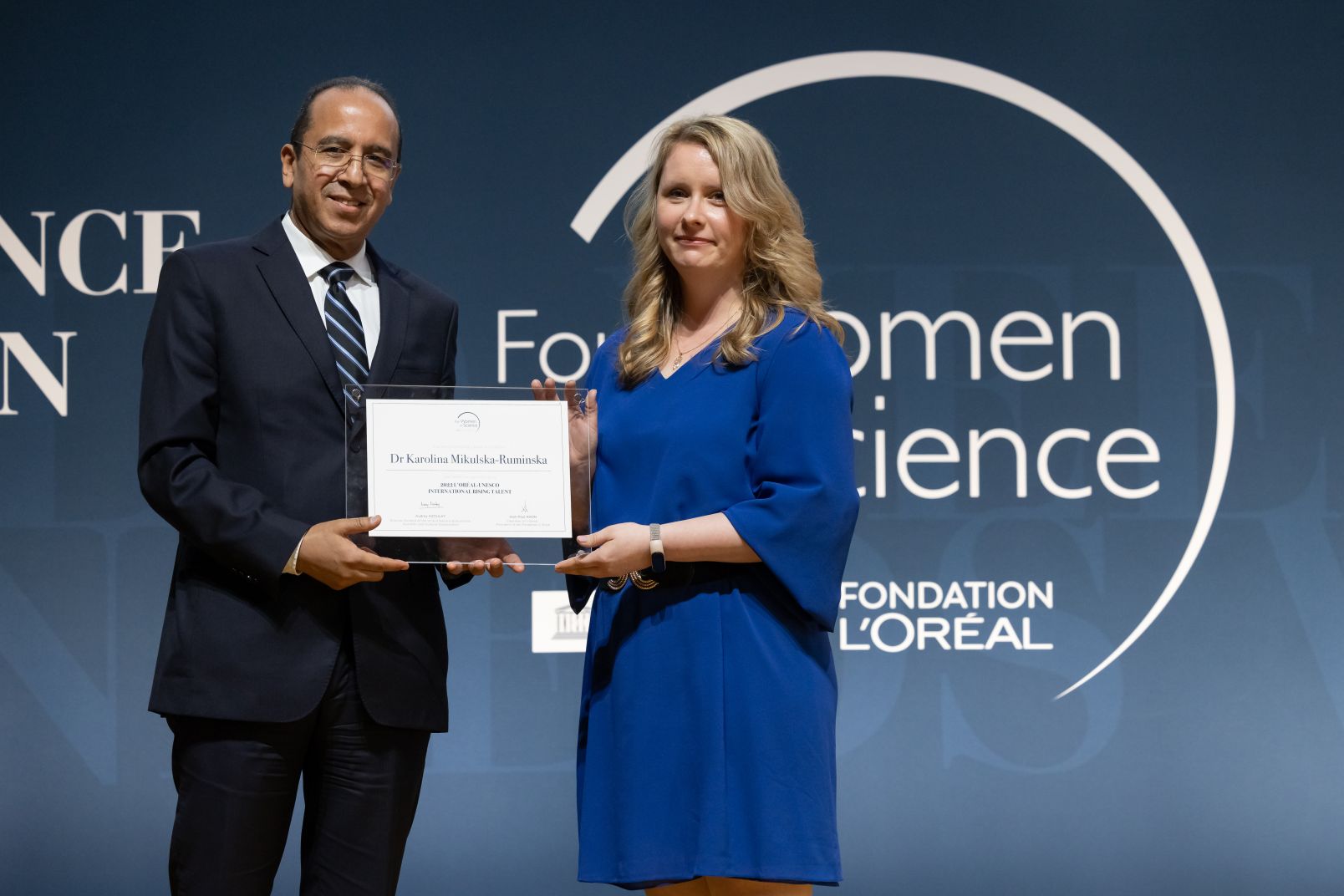
Women Masterminds
Since 1998, this is served by the program For Woman in Science. It was set in France – the country of origin of L'Oréal, which entered into cooperation in this field with the United Nations for Education, Science and Culture. Today, it is a whole global structure: L'Oréal foundation and UNESCO run both regional and national programs, within which 118 countries chose 250 women scholars - the most promising women researchers who represent various scientific disciplines. Poland has been involved in this initiative since 2001 – so far, 111 women have been awarded in our country. In the latest, 21st edition, among six outstanding women masterminds is Dr. Karolina Mikulska-Rumińska from the Chair of Biophysics in the Institute of Physics, NCU.
The women scholars of national programs are taking part in another enterprise of L'Oréal and UNESCO, which is International Rising Talent, which annually awards the most promising women researchers in the world. Dr. Mikulska-Rumińska has found herself in this prolific group as one of the 15 best in the world (one of 5 European women). So far, in the history of this program, only three Polish women have been awarded: Dr.habil. Bernadeta Szewczyk in 2016, Dr.habil.Joanna Sułkowska in 2017, and Dr.Agnieszka Gajewicz in 2018.
There is also the third recognition by L'Oréal UNESCO Award, which is awarded to five already recognized women researchers whose discoveries "provide the answer to the most key issues of the human kind" – among whom three Noble Prize winners have been selected.
The cell wants immortality
The Jury have noticed and appreciated the work of Dr. Karolina Mikulska-Rumińska, who in recent years has been proclaimed "the international rising talent". Her research on the mechanisms leading to the death of cells has been considered very promising as it is a fundamental issue for developing therapies in cancer or neurodegenerative diseases, such as Alzheimer, Parkinson, or Huntington diseases.
These cells die in two different ways. Firstly, accidentally or pathologically, by for instance, getting burnt, frost bitten, injured of through inflammation. Secondly, they die naturally, but in a way which is closely controlled by our organisms. Every day, in this way, 100 milliard cells die in our organisms – explains Dr. Karolina Mikulska-Rumińska. – Each cell multiplies, and once it has reached a certain level of multiplicity – which is 50 on average, and which we call Hayflick Limit, the process of dying begins.
Not always, however, does it happen in this way.
- Sometimes, the cell "does not want to die", does not commit "honorable suicide". It becomes immortal and it still multiplies – says Dr. Mikulska-Rumińska. – And then we do have a problem as it leads to cancer diseases.
One of multiple deaths
There are a few ways, regulated by our organism, in which the cell dies. Our laureate is interested in one particular – ferroptosis. This process is closely linked to iron, hence its name, from Greek term ptosis, which means decline, and from Latin term ferrum for iron. This phenomenon was discovered as late as ten years ago, whereas Dr. Mikulska-Rumińska began her researching this field in 2016 using tools of molecular biophysics. Her main aim is to find out the fundamental molecular rules of this process.
The mechanisms which take place during the death of a cell are still not known and remain a secret for many researchers. Learning them is a key to identify new solutions which may consequently lead to treating cancer and neurodegenerative diseases – explains Dr. Mikulska-Rumińska.
The research shows that inducing ferroptosis in a pharmacological way carries great potential in treatment of cancer, and its suppression may be used in slowing down neurodegenerative diseases such as Parkinson's, Alzheimer's, or Huntington's. Ferroptosis is also linked to sepsis, kidney disorders and asthma. Therefore, besides learning the fundamental mechanisms of the process of ferroptosis, one of the issues of interests for Dr. Mikulska-Rumińska is how to inhibit the process.
Ferroptosis has a connection with the cumulation of high amounts of lipid peroxides, which leads to massive peroxidation of lipids, and, in consequence, to damaging the cell membrane. They are produced through lipoxygenase, the proteins containing catalytic center with the iron ion are the family of proteins which are the main issue of my research – explains Dr. Mikulska-Rumińska.
Our laureate has already managed to indicate where are the "entrances" and "exists" leading to the places where are formed radicals of fatty acids in lipoxygenases, and which elements of proteins are key in producing toxic matter. In her research, Dr. Mikulska-Rumińska has shown that what is indispensable in the production of radicals of fatty acids, which lead to damaging the cell membrane in the process of ferroptosis, is combining lipoxygenases to protein PEBP1. She has also discovered the way in which the process of ferroptosis is suppressed by the best-known inhibitor of ferroptosis- ferrostatin-1, phospholipase iPLA2β, or nitrogen oxide (NO).
- We have also shown that nitrogen oxide is able to inhibit the process of ferroptosis. In a catalytic reaction, which occurs in lipoxygenases, oxygen is needed. It is attached to lipids and it is when toxic matter is produced – explains Dr. Mikulska-Rumińska. What else matters is that nitrogen oxide compete with oxygen – and in such a situation a traditional catalytic reaction cannot occur. Thich means that harmful products are not produced in this reaction.
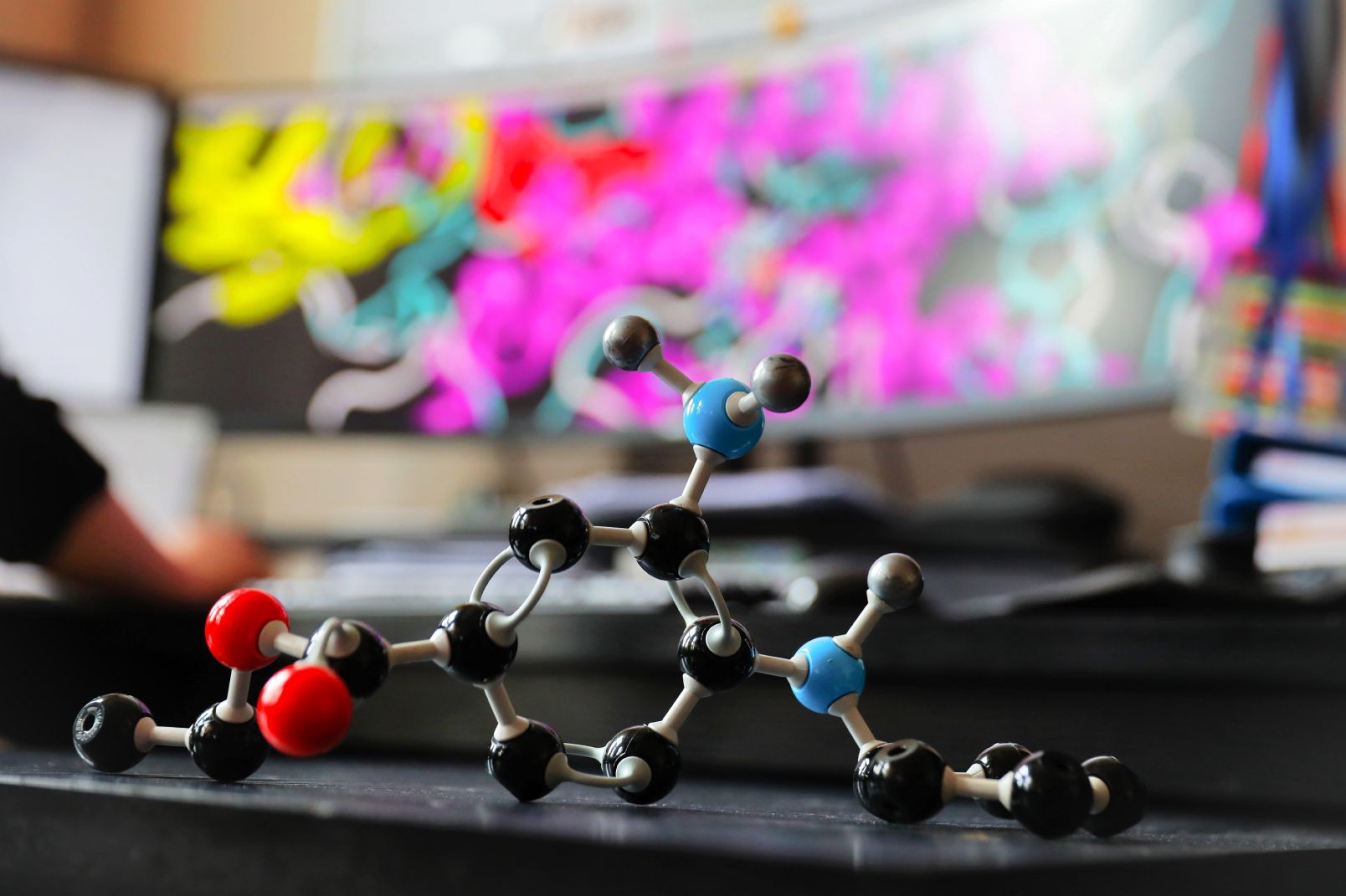
The first breaking-through outcomes of the work of the researcher and her partners were published in 2017, in a prestigious journal "Cell". Then, the discoveries of the biophysicist from Toruń could were read about even twice in "Nature Chemical Biology" and in "Journal of Clinical Investigation".
Science, women, and Paris
This year's edition of For Woman in Science will be exceptional. Not only will this year's women laurates of Rising Talent and L'Oréal UNESCO Award arrive to Paris. As due to the pandemic of Covid-19 the latest gala celebrations could not take place, all laureates of two previous editions will also take part. They will meet the media, undergo various training sessions, lectures and discussions. Each of them will have a chance to speak publicly and present her research work as well as scientific interests. The main ceremony will host 700 guests: scientists, people of business, industry, media, and industry, and other people of interest.
I cannot hide that I am very happy about this recognition, as well as that I have found myself in the group of such excellent women researches of the whole world – says Dr. Mikulska-Rumińska. – This is enormous recognition and appreciation of my work and the outcomes of my research. The grant offers a unique opportunity to develop international contacts and take part in specialist trainings.
Dr. Mikulska-Rumińska is leaving to France on June 17th to participate in different trainings, whereas the gala of awards will take place on June 23rd in the Paris headquarters of UNESCO.
Dr. Karolina Mikulska-Rumińska graduated from bachelor's and masters' degree studies in medical physics in the faculty of Physics, Astronomy and Informatics of Nicolaus Copernicus University in Toruń. In 2014, she defended with honors her doctoral dissertation.
During her doctoral studies, she took part in two internships: in a pharmaceutical company ADAMED, and as a beneficiary of European Grant Sciex-NMSch – in Laboratory of Physics of Living Matter at École Polytechnique Fédérale de Lausanne (EPFL) in Switzerland. At the same time, she was awarded a grant PRELUDIUM3 financed by National Center of Science (NCN) and she was employed as an assistant in the Faculty of Physics, Astronomy and Informatics, NCU.
In 2016, she began a 2,5-year post-doctoral internship in School of Medicine in Pittsburgh, USA under the supervision of prof. Ivet Bahar, where, i.a. she participated in the projects of National Institute of Health (NIH). After returning to Poland, she was promoted to the position of adjunct and received a grant of National Center of Science SONATA15.
She is an author of more than 20 publications. The recent six years, she has devoted to intensive research on the process of ferroptosis.
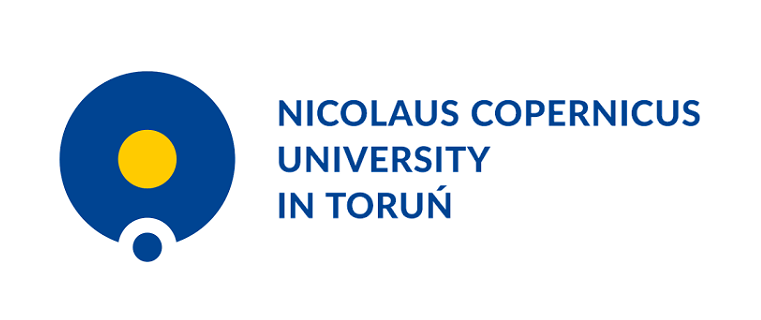 NCU News
NCU News







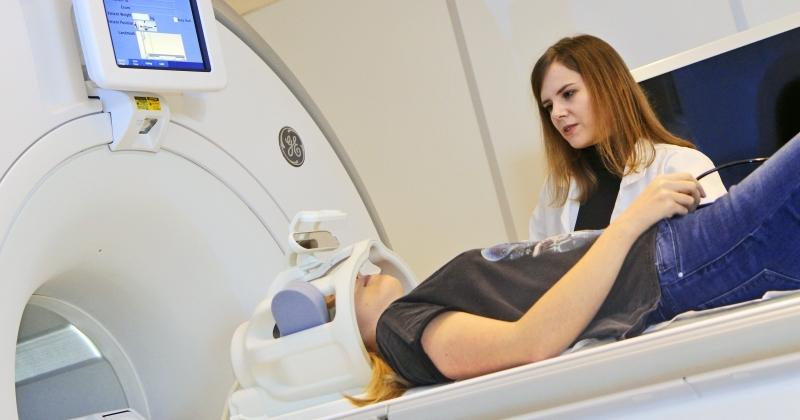 Exact sciences
Exact sciences

 Exact sciences
Exact sciences